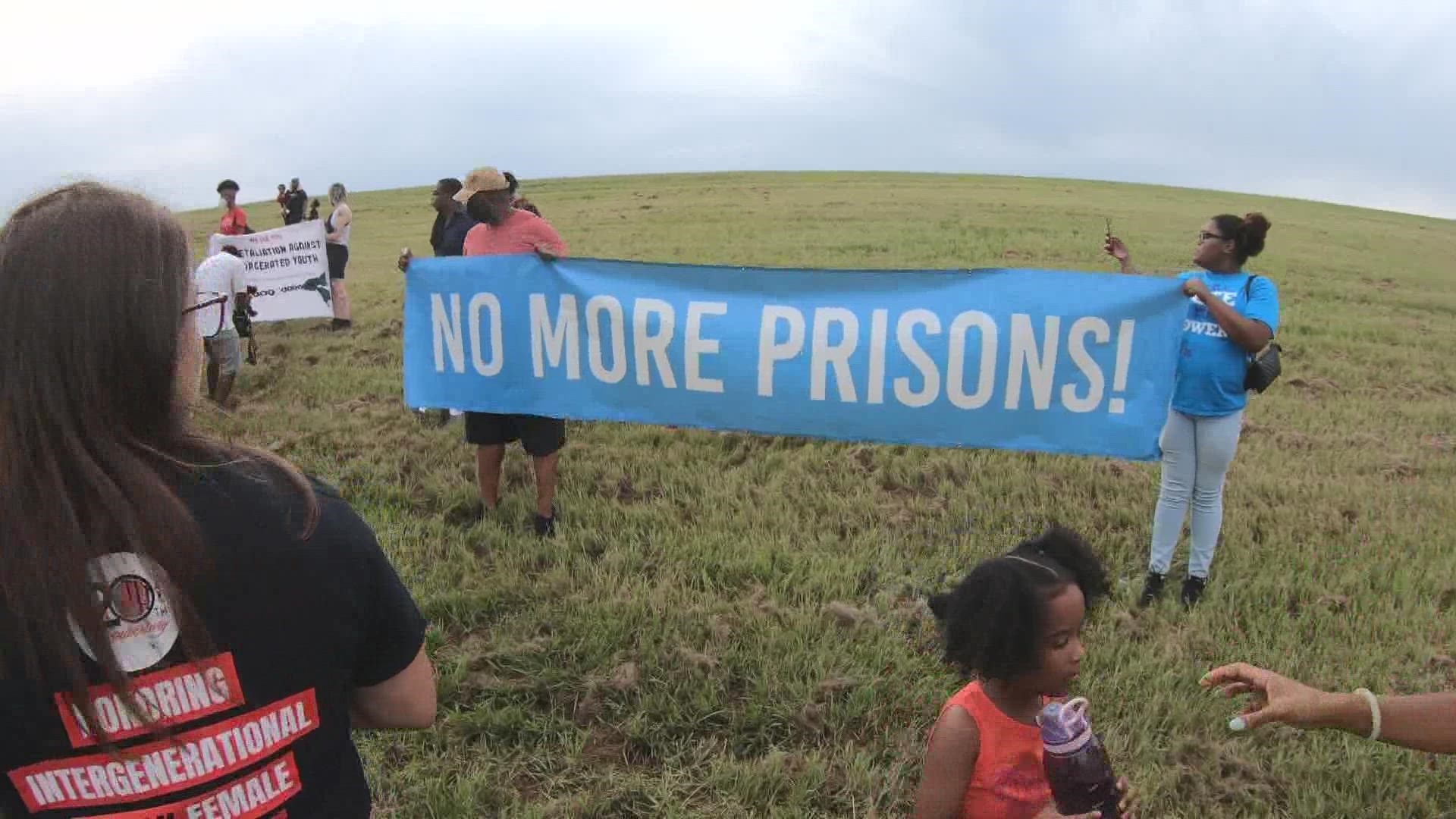NEW ORLEANS — Thursday night members of the community stood outside the front entrance of the Bridge City Youth Center, opposing Governor Edward's decision to send youth to the Louisiana State Penitentiary.
The governor announced this week that about half the youth will be moved from Bridge City Youth Center to the state's prison. Upwards of 20 people Thursday night, including criminal justice advocates, said youth should not be housed in an adult facility, period.
Gina Womack, Executive Director at Families and Friends of Louisiana's Incarcerated Children, says the decision is directly impacting Black and brown youth, because Angola was once a plantation.
"The majority of the children incarcerated are Black and brown young people and it's completely outrageous to then further traumatize these young people whose families have been seeking support and services, to now move them to a plantation," Womack said.
The Louisiana State Penitentiary, which is also known as Angola, is a maximum security prison some consider the toughest, bloodiest prison in America.
Federal law requires incarcerated youth be held separately from adult inmates. The governor said this law will be followed, but the question criminal justice advocates are asking is how it will be done.
Rachel Gassert from the Louisiana Center for Children’s Rights, is one of them.
She fears the only way that’s going to happen is by keeping kids in solitary.
"We do not believe its going to be possible to keep the kids separated from the adults at Angola," Gassert said. “They can’t see them, they can’t hear them and that is going to be very difficult in a prison that is entirely run by the people that are incarcerated there ... They virtually can never leave the building that they’re being held in."
Clinical Assistant Professor at Tulane University, Reggie Parquet says if the Governor can build a 12-foot fence around Bridge City, he can implement rehabilitative programs for the youth there, and those held at Angola.
“If we respond that quickly, I think we should also respond with building programs that will help them be successful once they return to their communities," he said.
He went on to explain sending youth to an adult prison will lead to worse outcomes.
“They will be returned to a juvenile facility, they will be angrier, they’re going to be more interested in lashing out," Parquet said.
Hector Linares, Professor in Youth Justice at Loyola University agrees.
“Aside from the legal concerns, just a policy decision we have this hole history in Louisiana of moving away from reform of the adult correctional model and this is a giant step backwards," Linares said.
Linares says youth with non-violent offenses should be held in community-based settings.
“That would free up resources, that would free up personal to give the attention to the higher needs youth.”
► Get breaking news from your neighborhood delivered directly to you by downloading the new FREE WWL-TV News app now in the IOS App Store or Google Play.

